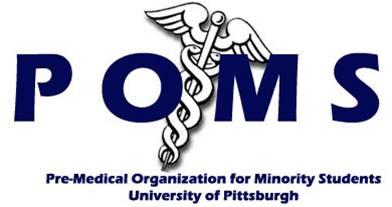

The MCAT
|
The Medical College Admission Test (a.k.a., the MCAT) is a very important and, often, very difficult
part of the application process for medical school. As stated above, the MCAT is only offered
twice each year, typically on the third Saturdays in April and in August. If you can, it is best to
take the MCAT in April, as opposed to August, for 2 reasons:
1. You will know your MCAT score when you actually apply to the medical schools – this is very helpful when selecting the schools to which you will apply (also, if you don’t like your score on the April test, you can take it again in August and still participate in the same application cycle) and; 2. Taking the April test allows your application to be reviewed much earlier in the process than waiting until the August test, since most medical schools will not even look at an application without an MCAT score (meaning that your application won’t be reviewed until October, at the earliest, since it takes about 8 weeks to get your MCAT scores). Also, many medical schools practice rolling admissions, which means that many candidates will have already been interviewed and/or accepted by the time that your application is getting a first review (which is why it’s helpful to be reviewed earlier, rather than later in the application process). Of course, this means working closely with your academic advisor to plan a schedule for the spring term of your junior year that will give you the time to prepare for the MCAT. Also keep in mind that the April MCAT and finals week usually coincide, so it will be important to study ahead for your finals during this term. The MCAT actually consists of 4 different exams: verbal reasoning, a writing sample, biological sciences (biology and organic chemistry) and physical sciences (general chemistry and physics). The writing sample is scored on a letter scale, with “J” being the lowest score and “T” being the highest. The other 3 sections are scored on a numerical scale, with “1” being the lowest score and “15” being the highest. Often you will hear of the scores on the verbal reasoning, biological sciences and physical sciences sections being added together for a “total” MCAT score, that can range from “3” to “45”. Although medical schools vary in their required and average MCAT scores, a score above “30” will probably make you competitive at most schools (this assumes that you’ve scored a “10” in each of the 3 sections). Although it’s not required, many students choose to take a prep course for the MCAT. Both Kaplan and The Princeton Review offer courses in the Oakland area; both courses offer a structured review and will allow you to take several practice tests. Unfortunately, these courses are pretty expensive (typically $900 - $1500), so be prepared for the cost. Please keep in mind that many students successfully complete the MCAT without taking a course – if you are disciplined, you can save yourself a significant amount of money by reviewing and practicing for the test yourself. Regardless of how you structure your review, please take this test VERY SERIOUSLY. Aside from your grades, your MCAT score is probably the most important factor in determining whether you are invited to interview, as well as whether you are admitted to medical school. Be sure to invest the proper amount of time and energy into your preparation for the MCAT, and don’t take it until you’re really ready. You should have completed all of your required science courses before taking the MCAT, and it’s strongly recommended that you have finished a course in biochemistry, as well. |
||
 Home Executive Board Semester Meetings Premed Reqs Freshman Year Sophomore Year Junior Year The MCAT Pre-Professional Health Committee The Interview FAQS |
